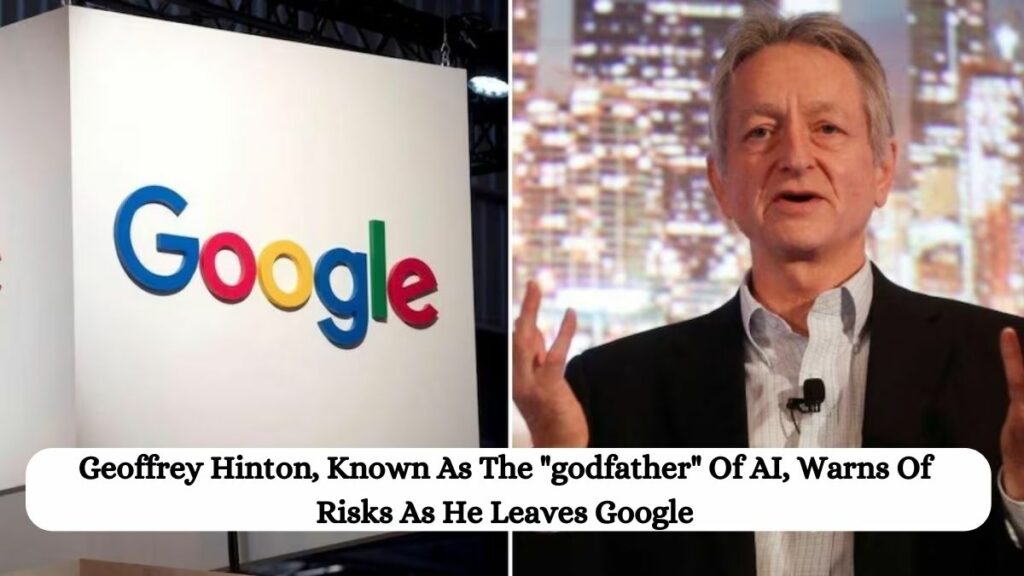A man widely regarded as the father of artificial intelligence (AI) has resigned from his position in order to raise awareness of the mounting risks posed by the field’s advancements. Geoffrey Hinton, 75, said in a message to the New York Times that he was leaving Google and that he now regretted his work.
He described some of the risks posed by AI chatbots as “quite scary” to the BBC. As far as I can tell, they aren’t smarter than we are at the moment. But I believe they might come shortly.
In addition, Dr. Hinton acknowledged that his advanced age had influenced his choice to depart the tech behemoth, telling the BBC that “I’m 75, so it’s time to retire.”
Current AI systems like ChatGPT are the result of Dr. Hinton’s groundbreaking work in the fields of deep learning and neural networks.
However, the cognitive psychologist and computer scientist who is British-Canadian told the BBC that the chatbot may soon surpass the amount of knowledge that a human brain can store.
“At the moment, what we’re observing is that things like GPT-4 much surpass a person in terms of its broad understanding. It’s not as skilled at reasoning, but it can already make simple decisions.
We anticipate things to improve quickly given the rate of progress. Therefore, we must consider that. Dr. Hinton made reference to “bad actors” who would try to exploit AI for “bad things” in the New York Times piece.
In response to a question from the BBC asking him to elaborate, he said: “This is simply kind of a worst-case scenario, kind of a nightmare scenario.
“You can imagine, for example, that some bad actor like [Russian President Vladimir] Putin decided to give robots the ability to create their own sub-goals.”
The researcher expressed concern that this could eventually “create sub-goals like ‘I need to get more power'”.
“I’ve concluded that the kind of intelligence we’re developing is very different from the intelligence we already have,” he continued.
“These are digital systems, whereas we are biological systems. The primary distinction between analog and digital systems is the abundance of copies of the same set of weights and world models.
Here is a tweet related to this topic:
In the NYT today, Cade Metz implies that I left Google so that I could criticize Google. Actually, I left so that I could talk about the dangers of AI without considering how this impacts Google. Google has acted very responsibly.
— Geoffrey Hinton (@geoffreyhinton) May 1, 2023
And while each of these clones can study independently, they can quickly share their knowledge. Therefore, it is as if there were 10,000 people and once one person learned something, it was automatically known by all of them. This is how these chatbots get access to so much more knowledge than a single human.
He emphasized that the tech giant had been “very responsible” and that he did not wish to criticize Google.
“I actually have some positive things to say about Google. And if I don’t work for Google, they have greater credibility.”
Google’s top scientist Jeff Dean stated in a statement: “We continue to be dedicated to a responsible approach to AI. We are always learning to innovate bravely while also understanding growing threats.

